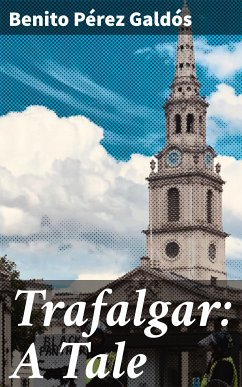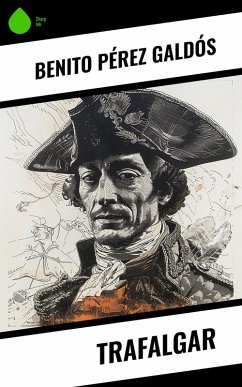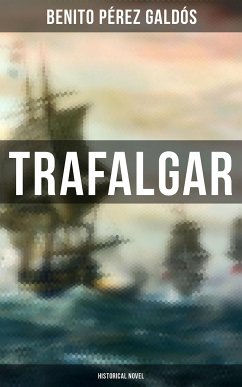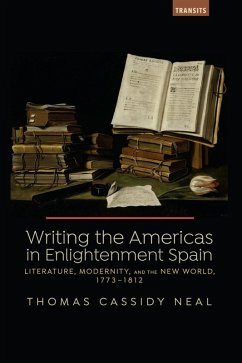
Trafalgar: A Tale (eBook, ePUB)

PAYBACK Punkte
0 °P sammeln!
In "Trafalgar: A Tale," Benito Pérez Galdós masterfully intertwines historical narrative with rich literary style to bring to life the fateful naval battle of Trafalgar in 1805. Written in a vivid and evocative prose, the novel captures not only the tumult of warfare but also the humanity of those caught in its throes. Galdós employs a blend of realism and romanticism, immersing readers in the political turmoil of the time while exploring the personal stories of soldiers and sailors, which serves as a poignant reflection on duty, honor, and sacrifice amidst chaos. As a historical novel, it ...
In "Trafalgar: A Tale," Benito Pérez Galdós masterfully intertwines historical narrative with rich literary style to bring to life the fateful naval battle of Trafalgar in 1805. Written in a vivid and evocative prose, the novel captures not only the tumult of warfare but also the humanity of those caught in its throes. Galdós employs a blend of realism and romanticism, immersing readers in the political turmoil of the time while exploring the personal stories of soldiers and sailors, which serves as a poignant reflection on duty, honor, and sacrifice amidst chaos. As a historical novel, it situates itself within the broader context of Spain's decline as a maritime power, offering insight into the socio-political repercussions of this significant encounter. Pérez Galdós, widely regarded as one of Spain's greatest novelists, was deeply influenced by his historical environment and the turbulent socio-political landscape of 19th-century Spain. His experiences and profound understanding of Spanish history shaped his narrative style and thematic concerns in "Trafalgar." Galdós's empathy for the common man and his engagement with contemporary social issues lend depth to this tale, as he vividly illustrates how monumental events can reverberate through individual lives. This work is a must-read for anyone interested in historical fiction that transcends mere storytelling to offer a critical examination of Spain's past. Galdós's intricate character development and compelling plot make this an enriching experience, leaving readers with a profound sense of connection to the past and its enduring impact on the present.
Dieser Download kann aus rechtlichen Gründen nur mit Rechnungsadresse in A, B, BG, CY, CZ, D, DK, EW, E, FIN, F, GR, H, IRL, I, LT, L, LR, M, NL, PL, P, R, S, SLO, SK ausgeliefert werden.













